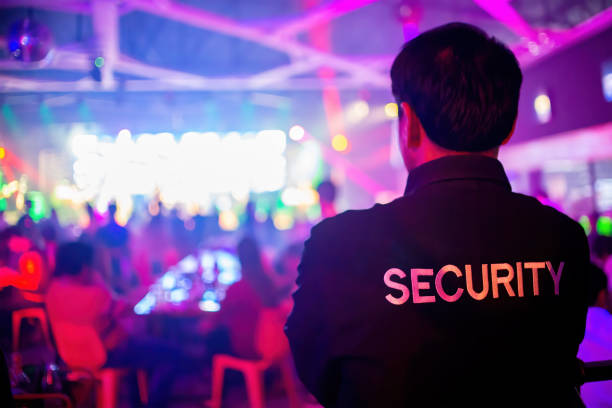At first glance, the question of who owns the alcoholic beverages in a private club might seem straightforward, but this inquiry opens the door to a complex web of legal, regulatory, and organizational considerations. Private clubs, which operate on models distinct from public bars or restaurants, often navigate a unique set of rules when it comes to alcohol ownership.
In our detailed exploration, “Who Owns the Alcoholic Beverages of a Private Club,” we dissect the layers of ownership and control that govern the stocking and serving of alcohol in these exclusive settings. Our expertise in legal statutes and club management practices provides a solid foundation for understanding the nuances of alcohol ownership within private clubs.
The article aims to demonstrate the value of comprehending the intricacies involved in the ownership of alcoholic beverages by private clubs. This is not merely a question of legal title; it is a matter that touches on club governance, member privileges, state laws, and the fiscal responsibilities of club management.
We understand that for members, managers, and stakeholders within private clubs, recognizing the subtleties of alcohol ownership can be the key to operating within the bounds of the law and maintaining a club’s reputation and member satisfaction. The issue of who legally owns the alcohol can impact licensing requirements, liability issues, and the overall operation of the club.
By diving into this topic, we invite readers to delve beyond the surface and engage with a subject that combines elements of law, business, and hospitality management. Our targeted insights promise to enlighten club administrators, members, and even legal professionals on the often-overlooked specifics of alcohol ownership in the context of private clubs.
As you embark on this insightful read, be prepared to challenge your assumptions and expand your understanding of private club operations. The ownership of alcoholic beverages is more than a matter of inventory—it is a defining factor in the identity and legal standing of a private club. Join us as we explore this fascinating topic and uncover the answers that are as informative as they are essential to the responsible management of private club amenities.
Contents
What is Private Club?

A private club is an organization that provides amenities, services, and activities to its members while limiting access to non-members. Private clubs come in many forms, from country clubs to fraternal organizations to dining clubs. A major appeal of many private clubs is that they offer food and alcoholic beverages in a more exclusive setting compared to a traditional restaurant or bar. But the policies around acquiring, paying for, and consuming alcohol at private clubs can be nuanced depending on local regulations.
Membership and Regulations
Private clubs require prospective members to go through an application process and meet certain criteria for admission. The membership policies and organizational structure are outlined in club bylaws. To avoid discrimination, these bylaws must not make membership decisions based on race, gender, religion, or other protected characteristics. Private club members pay dues and elect a Board of Directors to oversee club governance and finances. Members can also bring guests to the club for dining and events based on specific guest privileges.
Financial Structure of Private Clubs
Private clubs are funded through initiation fees, membership dues, and spending minimums. For alcohol specifically, clubs make bulk purchases from distributors to acquire wines, spirits, and beer at wholesale prices. These bulk purchases are financed through an alcohol assessment as part of member dues or a monthly minimum spending requirement. The club then sells individual drinks to members at marked-up prices to cover overhead costs and make a profit. So the cost of alcohol is shared among the collective membership.
Who owns the alcoholic beverages of a private club?
The alcoholic beverages in a private club are owned by the owner of the club, assuming that the owner has obtained a private club registration permit. Members of the club do not own the alcoholic beverages; they only have access and consumption privileges.
Serving Alcohol in Private Clubs
The regulations around alcohol service at private clubs depend on state and local laws. Some jurisdictions allow private clubs to serve alcohol when bars and restaurants cannot, under certain membership-based exemptions. This allows clubs to bypass general restrictions on times, locations, or days that alcohol can be sold. For example, some private golf courses can serve drinks on Sundays when alcohol sales are otherwise prohibited.
To take advantage of exemptions, some clubs offer temporary or special memberships as a legal loophole. However, private clubs still must follow basic alcohol laws regarding age restrictions, overserving, and disorderly conduct. Bartenders and servers have responsibilities around ID verification, recognizing intoxication, and denying service when appropriate. Security personnel may enforce intoxication limits, banned members lists, and responsible consumption policies.
Paying for Alcoholic Beverages
According to the Texas Alcoholic Beverage Commission (TABC), members of private clubs cannot pay cash for individual drinks. Alcohol purchases must be charged to the member’s account. This prevents evasion of the membership requirement.
Payment options within those parameters include:
- Running a member tab for each drink order.
- Club-issued drink vouchers that members pre-pay.
- Adding drinks to the member’s monthly bill.
If a member fails to pay their tab or account balance, the club can deny entry, suspend membership privileges, or pursue collection actions as permitted in the bylaws. However, servers can still be liable for overserving an intoxicated person regardless of payment status per Texas dram shop laws.
Conclusion
The ownership and payment structure for alcohol at private clubs is a complex matter intertwined with membership rules and alcohol control regulations. Servers must understand their legal obligations around verifying age, identifying intoxication, and denying service when warranted. While members may skirt general public alcohol laws via private club exemptions, bartenders and staff should still pursue responsible service to avoid permit violations or dram shop liability issues. For clubs and servers alike, proper training, adherence to TABC code, and promotion of safety are essential.

Trayce served as a grassroots leader and activist in Texas as President of Dallas and Texas Eagle Forum.
Trayce is Mom Caucus Member, Texas Conservative Mamas, Texas Conservative Grassroots Coalition Leader, and Grassroots America Champion of Freedom Honoree.
She currently serves as the Eagle Forum National Issues Chair on Human Trafficking.
Trayce received a Bachelor’s Degree in Marketing from Texas A&M
Currently, she homeschools her youngest child age 13 and graduated her six oldest children, ages 31 to 19.







